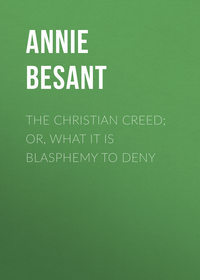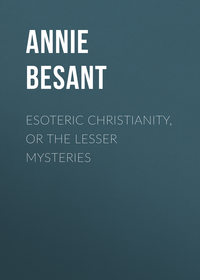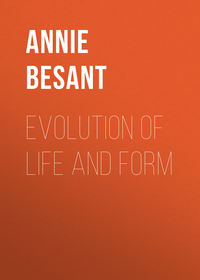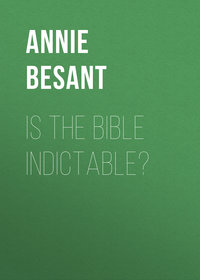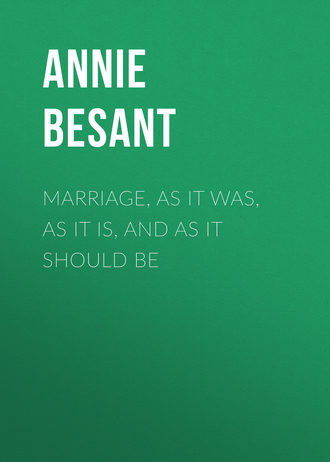 полная версия
полная версияMarriage, As It Was, As It Is, And As It Should Be
To those who, on the other hand, object to facility of divorce being granted at all, it may fairly be asked that they should not forget that to place divorce within the reach of people, is not the same as compelling them to submit to it. Those who prefer to regard marriage as indissoluble could as readily maintain the indissolubility of their own wedded tie under a law which permitted divorce, as they can do at the present time. But those who think otherwise, and are unhappy in their marriages, would then be able to set themselves free. No happy marriage would be affected by the change, for the attainability of divorce would only be welcomed by those whose marriage was a source of misery and of discord; the contented would be no less content, while the unhappy would be relieved of their unhappiness; thus the change would injure no one, while it would benefit many.
It is a pity that there is no way of obtaining the general feminine view of the subject of marriage and divorce; women who study, who form independent opinions are – so far as my experience goes – unanimous in their desire to see the English laws altered; advanced thinkers of both sexes are generally, one might say universally, in favour of change. To those who think that women, if polled to-morrow, would vote for a continuance of the present state of things, may be recommended the following passage from Mrs. Mill: "Women, it is said, do not desire, do not seek what is called their emancipation. On the contrary, they generally disown such claims when made in their behalf, and fall with acharnement upon any one of themselves who identifies herself with their common cause. Supposing the fact to be true in the fullest extent ever asserted, if it proves that European women ought to remain as they are, it proves exactly the same with respect to Asiatic women; for they too, instead of murmuring at their seclusion, and at the restraint imposed upon them, pride themselves on it, and are astonished at the effrontery of women who receive visits from male acquaintances, and are seen in the streets unveiled. Habits of submission make men as well as women servile-minded. The vast population of Asia do not desire or value, probably would not accept, political liberty, nor the savages of the forest, civilization; which does not prove that either of those things is undesirable for them, or that they will not, at some future time, enjoy it. Custom hardens human beings to any kind of degradation, by deadening the part of their nature which would resist it. And the case of women is, in this respect, even a peculiar one, for no other inferior caste that we have heard of have been taught to regard their degradation as their honour." Mr. Conway considers that changed circumstances would rapidly cause women to be favourable to the proposed alteration: "Am I told," he remarks, "that woman dreads the easy divorce? Naturally, for the prejudices and arrangements of society have not been adapted to the easy divorce. Let her know that, under the changed sentiment which shall follow changed law, she will meet with sympathy where now she would encounter suspicion; let her know that she will, if divorced from one she loves not, have only her fair share of the burdens entailed by the original mistake; and she who of all persons suffers most if the home be false will welcome the freer marriage" ("The Earthward Pilgrimage," p. 289).
Both in theory and in practice advanced thinkers have claimed facility of divorce. John Milton, in his essay on "Divorce," complains that "the misinterpreting of Scripture… hath changed the blessing of matrimony not seldom into a familiar and co-inhabiting mischiefe; at least into a drooping and disconsolate household captivitie, without refuge or redemption" (p. 2), and in his Puritan fashion he remarks that because of this "doubtles by the policy of the devill that gracious ordinance becomes insupportable," so that men avoid it and plunge into debauchery. Arguing that marriage is not to be regarded merely as a legitimate kind of sexual intercourse, but rather as a union of mind and feeling, Milton says: "That indisposition, unfitness, or contrariety of mind, arising from a cause in nature unchangable, hindring and ever likely to hinder the main benefits of conjugall society, which are solace and peace, is a greater reason of divorce than natural frigidity, especially if there be no children, and that there be mutual consent" (p. 5). Luther, before Milton, held the same liberal views. Mary Wolstonecraft acted on the same theory in her own life, and her daughter was united to the poet Shelley while Shelley's first wife was living, no legal divorce having severed the original marriage. Richard Carlile's second marriage was equally illegal. In our own days the union of George Henry Lewes and George Eliot has struck the key-note of the really moral marriage. Mary Wolstonecraft was unhappy in her choice, but in all the other cases the happiest results accrued. It needs considerable assurance to brand these great names with immorality, as all those must do who denounce as immoral unions which are at present illegal.
In the whole of the arguments put forward in the above pages there is not one word which is aimed at real marriage, at the faithful and durable union of two individuals of opposite sexes – a union originated in and maintained by love alone. Rather, to quote Milton once more, is reverence for marriage the root of the reform I urge: he who "thinks it better to part than to live sadly and injuriously to that cherfull covnant (for not to be belov'd and yet retain'd, is the greatest injury to a gentle spirit), he I say who therefore seeks to part, is one who highly honours the married life, and would not stain it; and the reasons which now move him to divorce, are equal to the best of those that could first warrant him to marry" (p. 10). In the advocacy of such views marriage is elevated, not degraded; no countenance is given to those who would fain destroy the idea of the durable union between one man and one woman. Monogamy appears to me to be the result of civilization, of personal dignity, of cultured feeling; loyalty of one man to one woman is, to me, the highest sexual ideal. The more civilized the nature the more durable and exclusive does the marriage union become; in the lower ranges of animal life difference of sex is enough to excite passion: there is no individuality of of choice. Among savages it is much the same: it is the female, not the woman, who is loved, although the savage rises higher than the lower brutes, and is attracted by individual beauty. The civilised man and woman need more than sex-difference and beauty of form; they seek satisfaction for mind, heart, and tastes as well as for body; each portion the complex nature requires its answer in its mate. Hence it arises that true marriage is exclusive, and that prostitution is revolting to the noble of both sexes, since in prostitution love is shorn of his fairest attributes, and passion, which is only his wings, is made the sole representative of the divinity. The fleeting connections supposed by some Free Love theorists are steps backward and not forward; they offer no possibility of home, no education of the character, no guarantee for the training of the children. The culture both of father and of mother, of the two natures of which its own is the resultant, is necessary to the healthy development of the child; it cannot be deprived of either without injury to its full and perfect growth.
But just as true marriage is invaluable, so is unreal marriage deteriorating in its effects on all concerned: therefore, where mistake has been made, it is important to the gravest interests of society that such mistake should be readily remediable, without injury to the character of either of those concerned in it. Freed from the union which injures both, the man and woman may seek for their fit helpmeets, and in happy marriages may become joyful servants of humanity, worthy parents of the citizens of to-morrow. Men and women must know conjugal, before they can know true parental, love; each must see in the child the features of the beloved ere the perfect circle of love can be complete. Husband and wife bound in closest, most durable and yet most eager union, children springing as flowers from the dual stem of love, home where the creators train the lives they have given – such will be the marriage of the future. The loathsome details of the Divorce Court will no longer pollute our papers; the public will no longer be called in to gloat over the ruins of desecrated love; society will be purified from sexual vice; men and women will rise to the full royalty of their humanity, and hand in hand tread life's pathways, trustful instead of suspicious, free instead of enslaved, bound by love instead of by law.
Printed by Annie Besant and Charles Bradlaugh,
28, Stone-cutter Street, London, E.C.
1
Since these lines were published in the National Reformer, a clause has been inserted in a bill now before Parliament, empowering magistrates to grant an order of separation to a wife? if it is proved that she has been cruelly ill-used by her husband, and further compelling the husband, in such a case, to contribute a weekly sum towards her maintenance. This will be a great improvement on the present state of things, but absolute divorce would be better than mere separation.
2
"It may suffice, in illustration of Pétion's character, to quote the touching inscription found on his tomb – 'Here lies Pétion, who enjoyed for twelve years absolute power, and during that period never caused one tear to flow.'"
3
"Boyer's resolution in this matter is the more remarkable, as he has been urged and pestered to submit to the forms of marriage. Grégoire, archbishop of Blois, and who is well known for the perseverance and benevolence with which he has, for a long series of years, advocated the cause of the African race, wrote to the president of Hayti in the most urgent terms, pressing upon him the virtue – the necessity, for his salvation – of conforming to the sacrament of marriage. To such a degree did the good old archbishop carry his intermeddling officiousness, that when Boyer mildly but firmly declined availing himself of his grace's advice, a rupture was the consequence, greatly to the sorrow of the president, who had ever entertained the greatest respect and affection for his ecclesiastical friend."


